#Aravind Adiga
Quote
In this world, there is a line: on one side are the men who cannot get things done, and on the other side are the men who can. And not one in a hundred will cross that line. Will you?
Aravind Adiga, Last Man in Tower
59 notes
·
View notes
Text
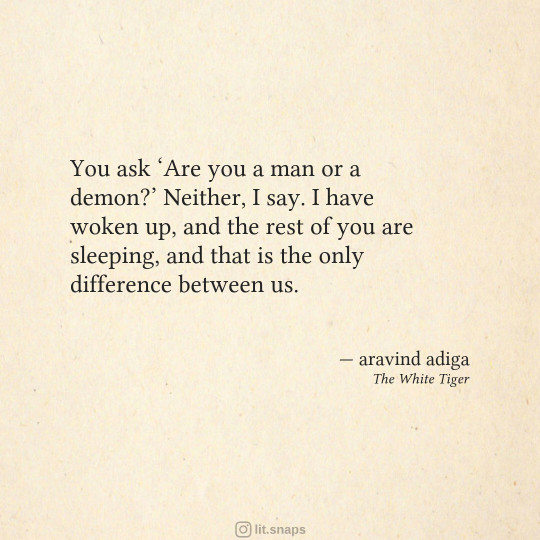
39 notes
·
View notes
Text

From Aravind Adiga’s The White Tiger
20 notes
·
View notes
Text
Do we loathe our masters behind a facade of love ---or do we love them behind a facade of loathing?
The White Tiger by Aravind Adiga
2 notes
·
View notes
Text
The White Tiger Book Review
The White Tiger by Aravind Adiga is a satirical, political commentary that shows the bottom-up perspective of those who reside in the underbelly of India. In this case ‘Balram Halwai’ is the main protagonist, who on face value is an unremarkable, lower-caste, rural villager stuck in the chokeholds of the unforgiving hierarchical system of India. Adiga sets about his satirical view of India, by consciously writing out an allegory that employs multiple motifs and metaphors to cartograph India as a land of pre-determined hope or despair. The main crux of the allegory – the Rooster Coop – is a metaphor used to describe the oppression of the elite brought upon India’s destitute, which is only then perpetuated by the poor themselves out of entrenched poliical and cultural subordination. Adiga paints Balram Halwai as the exception, the one who breaks out of this cycle of oppression; however, he loses his moral fabric in exchange.
The book is composed as a letter to the Chinese Premier in Beijing, Wen Jiabao, who is addressed to the ironically named “Capital of the Freedom-loving Nation of China”. The main character, Balram, attempts to write out an exposé of the ‘real India’, almost akin to a whistle-blower stripping back the glossy façade to reveal an ugly and ruthless inside. A way in which Adiga attempts is through the use of the motifs of “Darkness” and “Light”. Balram explains how he was born in the “Darkness” and that “India is two countries in one”. Balram’s identification of the ocean brings ‘light’ to the “well off”, but where he resides is along the path of the “Black River” – the “river of death” which suffocates and stunts every “plant” that is grown there. Politically speaking, Adiga could be attempting a criticism of the various degrees of unequal social mobility. Although the Indian Constitution promises liberty and freedom, and anyone can effectively move to the ‘light’, India does not recognize the dire need for equity in these rural areas. The suffocating and stunted plants near the river are symbolic and representative of the people who reside within these rural and cut-off areas, they are not able to flourish on the social ladder or reach the full potential that lies ahead of them. The “black” and “sticky” river that “traps” is indicative of the pre-determined nature of these people and their inability to thrive in the conditions they find themselves in. The “river”, symbolic of the system – the lifeline - itself has failed them from the ground up. This sets a profound precedent in which Balram at first feels institutionalized in his fixed position in society.
This of course opens a psychological discourse of the dichotomy between ‘free will’ and ‘determinism’, another competing source of political misfortune in India, which Balram is symbolic of escaping from, the exception in the cycle of oppression. The caste system is front and centre to this dichotomy, with Balram admitting ‘my caste – my destiny”. Where caste was once a complex system of entrenched hierarchies, which the British Raj reinforced to classify the population, Balram believes he is now living in a simpler time of caste system: “men with big bellies and men with small bellies”. The White Tiger’s exploration of caste again takes a satirical turn in this way, as we can interpret this as the advent of global capitalism, simplifying hierarchy into means of consumption, what we have and what we don’t and of course the means of production. Balram and his family are subordinated to the upper-caste landlords, the ‘Animals’, which terrorize the village over their control of the agricultural land and therefore their means to a living. Politically speaking we can talk about the threat of democratic backsliding in India, but the idea of liberal democracy itself is but an abstract image in the eyes of the destitute, many of whom are trapped within the ‘Rooster Coop’ with the fences of caste and wealth disparity paralyzing them. The idea of a pre-determined fate in India is all too prevalent. The character of Ashok, the wealthy son of the Stork, is a reluctant but accountable individual in bribing corrupt politicians for leverage. Like the motif of the “black river” before, the source that Indians look to for benevolence has been poisoned and corrupted in the pursuit of the capitalist interests of the few – the most contemporary representation of this being the mass Farmer's Protest.
Balram’s escape from the ‘Rooster Coop’ is an idealization of freedom. Balram spits on the ground as he sees his village from afar, where the abandoned Black Fort represents the mystical and colonial past, his vantage point points toward the landlord’s mansion, a source of burden and heavy taxation, and the “glistening line of sewage” – representative of the rural degradation villages suffer as a source of egregious extraction and plunder. This harks back to the British Raj where only the upper-class elite was granted immunity from the harsh realities of imperialism. Balram’s escape from this is then remarkable, he is trapped under the remnants of a feudal system, and therefore his steps towards freedom would not be without consequence – losing his family as a safety net, but also not being there as a source of income for them anymore.
The White Tiger, although an escape from the true grounded realities of India, is still a profound satirical representation of India. The allegory of the ‘Rooster Coop’ is a constant throughout the book, which highlights the institutionalization of oppression itself within the poor, highlighting the lack of a means to social mobility whilst also subordinated by hierarchical social forces. Balram Halwai, the ‘White Tiger’, himself is a unique individual within a story of symbolic caricatures who represent the elite. Balram having to kill his ‘oppressor’ to ultimately emulate the capitalist elite he was subordinated under is ironic within itself and ultimately serves as a lesson in the perpetual cycle of oppression that is the ‘Rooster Coop’ – it is harrowingly “eat or get eaten up”.
Bibliography
Adiga, A., 2008. The White Tiger. 2nd ed. London: Atlantic Books.
#book blog#book review#the white tiger#aravind adiga#marxism#political economy#india#indian politics#indian literature#caste system
6 notes
·
View notes
Photo

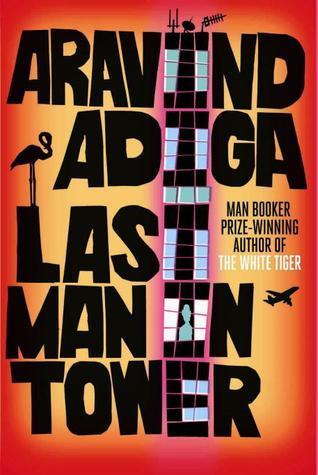
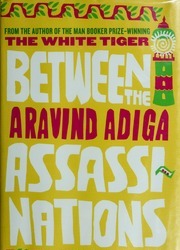
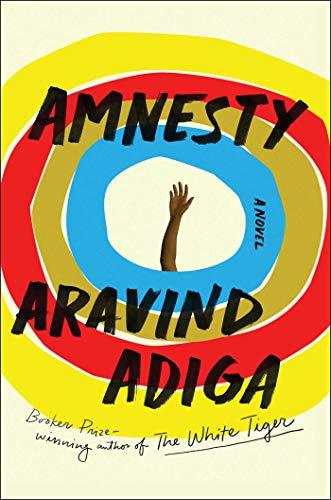
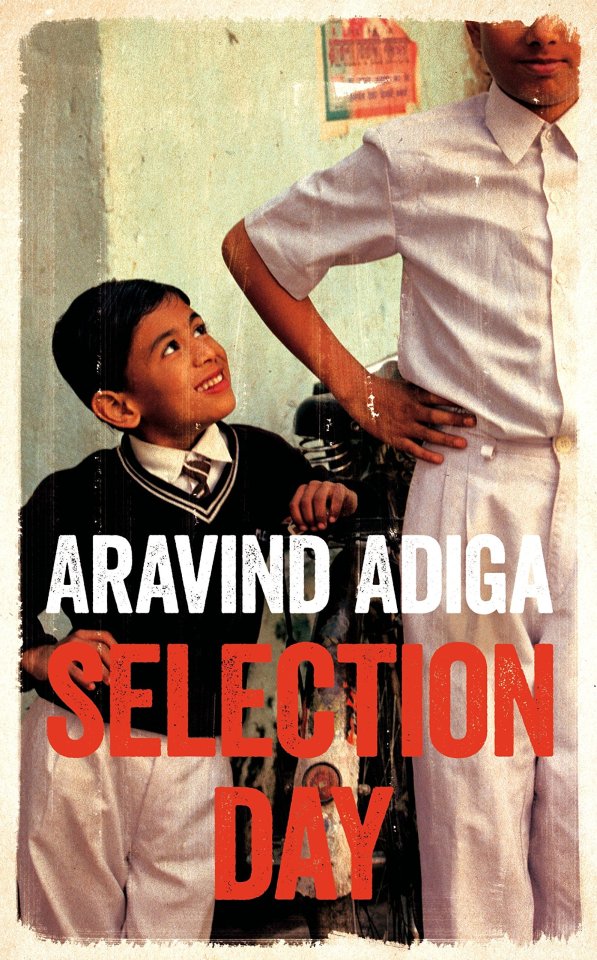

AUTHOR FEATURE:
﹒Aravind Adiga﹒
Five Books Written By this Author:
Last Man in Tower
Between the Assassinations
Amnesty
Selection Day
The White Tiger
___
Happy reading!
#books#bookish#booklr#bookworm#bookaholic#bibliophile#book blog#book blogger#Features#on books#on reading#reader#reading#read#book list#aravind adiga#diversify your shelves#tbr#to-read#south asian authors
3 notes
·
View notes
Note
yoo you’re reading aravind adiga? i tried reading the white tiger a few years ago but ended up dropping it, what do you think of his new book so far?
AHHHHHHHHHB ok idk if this is his latest book but it’s...something? I didn’t even check it out on gr it’s a random library book that seemed interesting. It isn’t super like linear it just keeps switching to a diff character in kittur every chapter and never comes back to like paint a picture ig. I’m like 100 pages in and it’s...super depressing so far and I’m a littleee conflicted because idk it’s either really hard hitting or trauma porny based on if the author actually has experience with a lot of the subject matter? idk subject to change definitely interesting so far
6 notes
·
View notes
Text
why is that when people talk about The White Tiger, they always talk about class struggles, power dynamics, corruption and other similar topics? what about homoeroticism? because what was "i swear by God, sir - i swear by all 36,000,004 of them - the moment i saw his face, i knew: this is the master for me" or "now i understood ... why my beak was getting stiff as i was driving. because he was horny" or "baby ... you big pathetic baby" or "has there even been a master-servant relationship like this one? he was so powerless, so lost, my heart just had to melt."
5 notes
·
View notes
Text
Une page au hasard (extrait 132)
“En Australie, la règle tacite veut que l’employé de ménage ne se penche jamais pour toucher quelque chose, n’importe quoi, situé au-dessous du niveau d’une table basse. Le propriétaire des lieux est censé ramasser tout ce qui traîne sur le sol avant que vous ne commenciez à travailler. Dans ce métier, il existe des règles pour les deux parties.”
page 25
Amnistie / Aravind Adiga. Traduit de l’anglais (Inde) par Annick Le Goyat. Globe, 2022.

0 notes
Text
Amnesty
Literary fiction novel about an asylum seeker in Sydney whose visa has expired
Content warning: racism, exploitation, family violence, torture
This was one of the books for Asia Bookroom‘s book group this year that unfortunately I wasn’t able to attend this one. I read another book by this author and really enjoyed it, so even though I missed the book group I was still very keen to read…

View On WordPress
0 notes
Quote
These are the three main diseases of this country, sir: typhoid, cholera, and election fever. This last one is the worst; it makes people talk and talk about things that they have no say in... Like eunuchs discussing the Kama Sutra, the voters discuss the elections...
Aravind Adiga, The White Tiger
33 notes
·
View notes
Photo
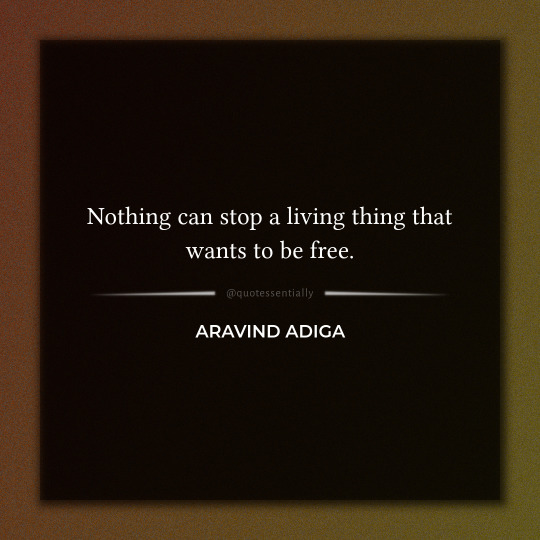
From Aravind Adiga’s Last Man in Tower
16 notes
·
View notes
Text
If I may go back for a moment to that WANTED poster, Your Excellency. Being called a murderer: fine, I have no objection to that. It's a fact: I am a sinner, a fallen human. But to be called a murderer by the police!
What a fucking joke.
The White Tiger by Aravind Adiga
1 note
·
View note
Text
2022 in Books: Fiction Edition
literary fiction published 2015-2022 (based on publish of english translation!)
breasts and eggs by mieko kawakami (⭐⭐⭐⭐⭐)
heads of the colored people by nafissa thompson-spires (⭐⭐⭐⭐⭐) - a perfect short story collection. so witty!
the hole by hiroko oyamada (⭐⭐⭐⭐⭐)
larose by louise erdrich (⭐⭐⭐⭐⭐)
i will die in a foreign land by kalani pickhart (⭐⭐⭐⭐)
the house of broken angels by luis alberto urrea (⭐⭐⭐⭐)
less by andrew sea greer (⭐⭐⭐⭐)
there there by tommy orange (⭐⭐⭐⭐)
at night all blood is black by david diop (⭐⭐⭐⭐)
beautiful world, where are you by sally rooney (⭐⭐⭐)
weasels in the attic by hiroko oyamada (⭐⭐⭐)
joan is okay by weike wang (⭐⭐⭐)
a tiny upward shove by melissa chadburn (⭐⭐⭐) - one of the most upsetting books i've ever read :( lots of merit but good lord is it rough
open water by caleb azumah nelson (⭐⭐⭐)
earthlings by sayaka murata (⭐⭐⭐) - competing with a tiny upward shove for most disgusting difficult book to read. this one i almost couldn't complete
kim jiyoung, born 1982 by nam-joo cho (⭐⭐) - this is so overrated. it's not a novel. it's an essay pretending to be a novel.
very nice by marcy dermansky (⭐⭐)
true love by sarah gerard (⭐⭐) - ever wanted to shake some sense into a character before?
spark by naoki matayoshi (⭐⭐)
people from my neighborhood by hiromi kawakami (⭐⭐)
the doll by ismail kadare (⭐)
literary fiction published 1971-2014
sexing the cherry by jeanette winterson (⭐⭐⭐⭐⭐) - i have never highlighted more lines in a book. prose got me in a chokehold.
love in the time of cholera by gabriel garcia marquez (⭐⭐⭐⭐⭐)
norwegian wood by haruki murakami (⭐⭐⭐⭐⭐) - i don't wanna like murakami as much as i do but damn he doesn't miss
midnight's children by salman rushdie (⭐⭐⭐⭐⭐)
less than zero by bret easton ellis (⭐⭐⭐⭐)
woman at point zero by nawal el saadawi (⭐⭐⭐⭐) - read this if you want to get homicidally angry :)
lion cross point by masatsugu ono (⭐⭐⭐⭐)
post office by charles bukowski (⭐⭐⭐⭐)
dept. of speculation by jenny offill (⭐⭐⭐⭐) - if i'd ever had to fight for a relationship this would have been a 5 star.
the dangers of smoking in bed by mariana enriquez (⭐⭐⭐⭐)
woman hollering creek and other stories by sandra cisneros (⭐⭐⭐⭐) - cheat code: read this aloud. prose drips off the tongue.
the ten loves of mr. nishino by hiromi kawakami (⭐⭐⭐⭐)
kitchen by banana yoshimoto (⭐⭐⭐⭐)
the divorce by cesar aira (⭐⭐⭐⭐) - 4 stars on the merit of the first part. the rest is probably a 3 star
if you kept a record of sins by andrea bajani (⭐⭐⭐⭐)
love by hanne orstavik (⭐⭐⭐⭐)
too loud a solitude by bohumil hrabal (⭐⭐⭐)
the factory by hiroko oyamada (⭐⭐⭐)
a feather on the breath of god by sigrid nunez (⭐⭐⭐) - good for what it is but a bit lightweight? maybe too critical because i loved 'the friend' by the same author
the white tiger by aravind adiga (⭐⭐⭐)
sleepless nights by elizabeth hardwick (⭐⭐⭐)
the story of my teeth by valeria luiselli (⭐⭐) - cool concept. unsure about the execution.
interpreter of maladies by jhumpa lahiri (⭐⭐)
battles in the desert by jose emilio pacheco (⭐⭐) - should have been a novel not a novella. it ends right as it starts to gain steam
literary fiction published start of time-1970
the passion according to g.h. by clarice lispector (⭐⭐⭐⭐⭐) - favorite book of the year!!!! an existential crisis on paper!!!!
japanese tales of mystery & imagination by edogawa rampo (⭐⭐⭐⭐⭐) - the 1st short story in this is insane! insane! the chair! i'm screaming!
miramar by naguib mahfouz (⭐⭐⭐⭐⭐)
we have always lived in the castle by shirley jackson (⭐⭐⭐⭐⭐)
the blind owl by sadegh hedayat (⭐⭐⭐⭐⭐) - pinnacle of slow descent into madness fiction...or it's not that slow i guess
pedro paramo by juan rulfo (⭐⭐⭐⭐⭐)
the turn of the screw by henry james (⭐⭐⭐⭐⭐) - would have been 4 stars, but i read an edition with lit crit essays in the back and it was so fun to read the "but are the ghosts real?" discourses that i had to give it that extra star
i am a cat by natsume soseki (⭐⭐⭐⭐⭐) - if soseki ever described my physical appearance in writing i'd promptly perish. he eviscerates people. dear god.
giovanni's room by james baldwin (⭐⭐⭐⭐⭐)
the old man and the sea (⭐⭐⭐⭐⭐)
the interpreters by wole soyinka (⭐⭐⭐⭐⭐) - i don't even know what i like about this book. bad characters, no plot, confusing prose. and yet...it's got a rhythm. it possessed me.
pocho by jose antonio villareal (⭐⭐⭐⭐)
the living is easy by dorothy west (⭐⭐⭐⭐) - one of my fave protags of all time!
yesterday by juan emar (⭐⭐⭐⭐)
naomi by jun'ichiro tanizaki (⭐⭐⭐⭐)
passing by nella larsen (⭐⭐⭐⭐)
wide sargasso sea by jean rhys (⭐⭐⭐⭐)
bartleby, the scrivener: a story of wall street by herman melville (⭐⭐⭐) - tell you why i didn't give this more stars? i'd prefer not to.
season of migration to the north by tayeb salih (⭐⭐⭐)
everything and nothing by jorge luis borges (⭐⭐⭐) - i read this with a migraine. i was not in the right mindset. i'll give ficciones more attention someday.
portrait of the artist as a young man by james joyce (⭐⭐) - listen i'm not proud of this rating either. joyce isn't 2 stars. i'm just a 2 star reader.
genre fiction from all time
the fifth season by n.k. jemisin (⭐⭐⭐⭐⭐) - STUNNING
the invisible life of addie larue by v.e. schwab (⭐⭐⭐⭐) - i usually don't care for fantasy and hated the other v.e. schwab i read, so this was a nice surprise. it lost me at points but ultimately regained me. deals with the devil are my kryptonite.
a court of mist and fury by sarah j. maas (⭐⭐⭐) - i get the hype. hard to criticize because its faults are what make it so good to others. i liked a lot of it.
how to stop time by matt haig (⭐⭐⭐)
the goddess chronicle by natsuo kirino (⭐⭐⭐)
never have i ever by isabel yap (⭐⭐⭐)
almond by sohn won-pyung (⭐⭐⭐)
once more upon a time by roshani chokshi (⭐⭐⭐)
sea of ruin by pam godwin (⭐⭐) - i thought this was a pirate romance. it is smut. pure smut. i was blushing on audio book. not a fan.
city of refuge by kenzo kitakata (⭐⭐)
nothing but blackened teeth by cassandra khaw (⭐⭐) - bizarre ending. like it could have been ok but it missed the obvious homerun for no reason.
velvet was the night by silvia garcia-moreno (⭐⭐)
colorful by eto mori (⭐⭐)
plays
millennium approaches by tony kushner (⭐⭐⭐⭐⭐)
a doll's house by henrik ibsen (⭐⭐⭐⭐)
the inspector general by nikolai gogol (⭐⭐⭐⭐)
waiting for godot by samuel beckett (⭐⭐) - listen i'm just a dumb dumb. i know it's good. i just didn't like it.
14 notes
·
View notes
Text
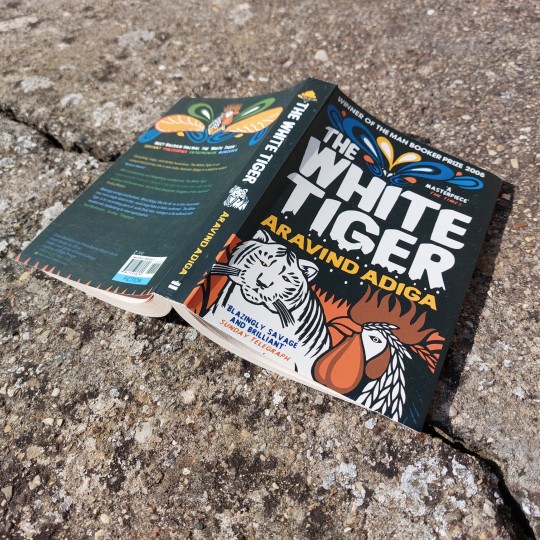
The white tiger by Aravind Adiga
3 notes
·
View notes
Text
i have my own quibbles with aravind adiga's writing but he actually did something awesome with selection day... such a great tragedy.
2 notes
·
View notes